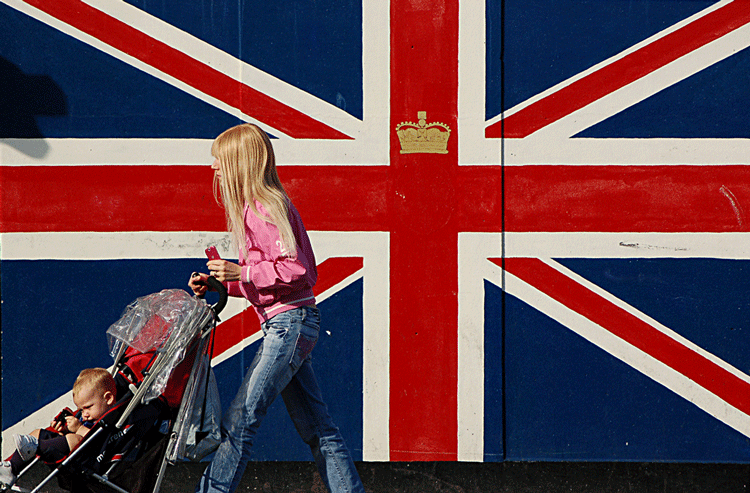As everyone woke up to Brexit on 24 June, there was a dawning realization that we were in uncharted territory. The campaign was focused on what we were trying to avoid, not where we wanted to head. That was true of the Remainers, with their increasingly apocalyptic warnings of what would happen if we left the EU, and little positive vision of a European future. It was also true of the Brexiteers, with their promise of escape from the shackles imposed by Brussels – a happy abstraction that ignored contradictions. Given the near-certainty that the UK will leave the EU, we need to understand why we have arrived where we are and how we are going to answer that central democratic question: what future do we want?
In the background to the vote is a UK that has been transformed by globalization over the last couple of generations, one where large cities, especially London, have adapted and (patchily) flourished while other areas – Cornwall, say, or north-east England – have experienced a long-term, increasingly entrenched decline. The divisions were not just regional but also generational, with an estimated 75 per cent of 18- to 24-year-olds voting to remain, in contrast with only 39 percent of those over 65.
These cracks in the regional and generational map could be papered over while globalization appeared to offer unending growth. But then came the 2008 crisis and, in its wake, an austerity that has brutally exposed inequality as one of the key issues of our age.
That inequality and long festering neglect was part of the reason why those regions that have been hit hardest voted en masse to leave the EU, despite being largely the recipients of EU funding. In some areas, such as Cornwall, the leave vote was likely bolstered because of dependency on EU funding and resentment of the political marginalization that went with it. Inequality is also probably a key factor for the salience of immigration in the debate, its reduction seen as a short-term and simple fix to what are much deeper and complex problems.
But Brexit was not just about Europe. It was a chance to poke a remote Westminster elite in the eye and protest more generally about how politics-as-usual has failed to respond to the needs and interests of large swathes of the population. There has never been an easy Golden Age of politics, but we urgently need to recover a focus on how we build a better world for all our communities, as well as for coming generations.
Engagement with people across the country will be vital, especially those whose vote on 23 June was a protest against neglect and marginalization. There will be competing visions of future social justice, but working out what this really means to people will be crucial. Otherwise the fault-lines in our society will become deeper and the solidarity necessary for democracy to flourish will be undermined. Brexit could turn out to be just a first rebellion against institutions and a political class felt to be unresponsive.
The need for engagement is not new but we urgently need to refresh our approach. At the heart of our democracy in the years following World War II were mass political parties that engaged and mediated different interest groups across the country, and managed the complex choices that democracies face. But they have shrunk almost beyond recognition. The Conservative Party in 2015 had fewer than 150,000 members, down from 2.8 million in the 1950s. A full 60 percent of its members are now older than 60. In this regard the Labour Party has fared better, its membership of 270,000 in mid-2015 nearly doubling to 500,000 members as a consequence of Jeremy Corbyn’s leadership campaign and then Brexit. At last count (before the referendum), the average Labour member was 42 years old. But its membership topped a million in the 1950s and had a greater reach through the trade unions in their pre-Thatcher heyday. The main parties simply do not connect with the country as they once did. On top of this, the civil war within the Conservative party, the main dynamic behind the referendum, is unlikely to end while a new relationship with Europe is negotiated, and Labour is being torn apart between the parliamentary party and the membership. The exception to all this is Scotland – the SNP has 110,000 members, about 1 in 50 Scottish citizens – but the Brexit result again brings into question Scotland’s future as part of the United Kingdom.
Social media have provided new means of engagement, and are of growing importance as mass print media decline. But participation is skewed demographically and geographically and can often be highly polarised, and discussion can settle into distinct ‘bubbles’, leaving many groups disconnected or excluded. Something more systematic is required.
What we need are conversations about the future we want that cut across apparent divides. This was sadly lacking in the vitriolic debate around the referendum. How might this be done? We can draw inspiration from the ‘the Wales We Want’ conversation, which helped inspire the Well-being of Future Generations (Wales) Act 2015. And there are many other models of public engagement and citizen participation that could be encouraged. We need to be creative and imaginative and build coalitions among civil society organisations to promote such conversations.
Such public engagement needs to be informed by expert opinion that can be interrogated from diverse angles across communities rather than delivered top-down or, as was too often the case in the referendum, just dismissed as piffle. Expert opinion needs to be held to account, but Michael Gove’s declaration that “people in this country have had enough of experts” is unacceptable populism. Both sides in the referendum campaign seemed to abandon standards of truthfulness, leaving the public none-the-wiser of the real impact of leaving or staying.
As well as engagement within our borders, it is imperative that we maximize engagement beyond them. We have rejected the supra-national authority of the EU, but many of the key problems facing our future cut across national boundaries. Solidarity within the UK, across Europe and beyond will be essential if, for instance, we are to maintain and extend environmental protections that have been hard won in recent decades. This will not just require international action at the level of the state but also across civil society. The use and abuse of natural resources, pollution, climate change, the other environmental issues do not stop at the Channel. As we distance ourselves from the European institutions that address these issues, it falls to NGOs, citizen groups and individuals to collaborate all the more determinedly – not only within the UK but across borders to build a sustainable future. If we fail in this, we will have rejected not just the EU, but a better common future for ourselves and the generations that follow.




